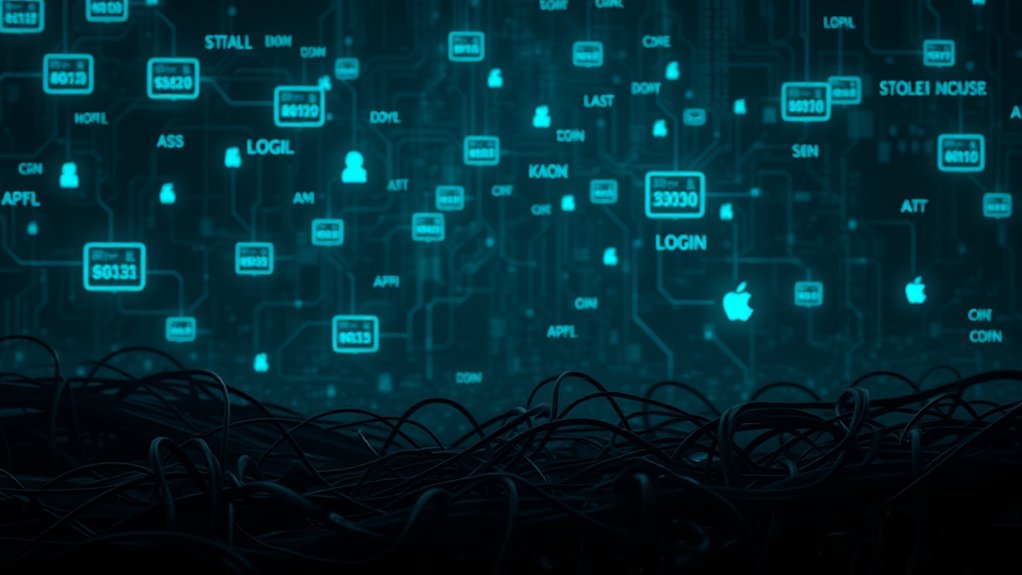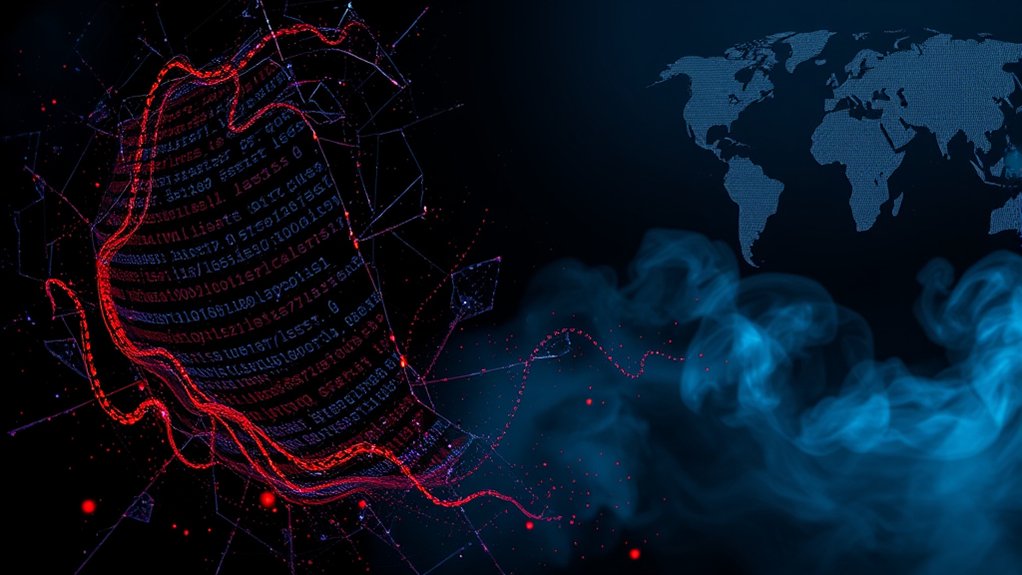In a disturbing development for global cybersecurity, over 16 billion login credentials have reportedly been exposed, posing significant risks to users across a multitude of major platforms, including Google, Facebook, and Apple. This alarming scale of data breach suggests systemic vulnerabilities across the digital terrain, affecting billions of online accounts.
The exposed data, which includes URLs, usernames, and passwords, has been linked to infostealer malware prevalent on numerous infected devices. Such malware operates discreetly, capturing sensitive information from a diverse array of applications, including browsers, email clients, and messaging platforms.
The exposed data, including URLs, usernames, and passwords, highlights the pervasive threat of infostealer malware on infected devices.
The credentials have found their way onto the darknet and various illicit online marketplaces, signaling an urgent need for individuals and organizations to reassess their cybersecurity measures. The potential for phishing incidents, identity theft, and account takeovers has raised global alarms among cybersecurity experts. They warn that stolen credentials could facilitate sophisticated phishing scams that exploit the trust users place in recognizable online services, leading to financial loss and compromised personal data.
The scope of the issue extends beyond these concerns; the sheer number of devices believed to be infected—approximately 320 million—underlines a staggering epidemic of malware that continues to jeopardize user security worldwide. Users of affected platforms may face unprecedented risks due to fresh data leaks infostealers, as this type of malware is commonly known, are designed to silently mine confidential information, compounding the problem as devices become increasingly enmeshed in online activities.
Amid these threats, experts advocate for improved cybersecurity protocols. Recommendations include implementing two-factor authentication (2FA), utilizing password managers for secure credentials, and maintaining regular software updates to thwart potential vulnerabilities.
Additionally, services like Have I Been Pwned offer users a means to check the status of their accounts.
Ultimately, understanding the origins and implications of this breach is critical for users and organizations alike, as the attempt to safeguard sensitive information becomes a pressing global concern.









